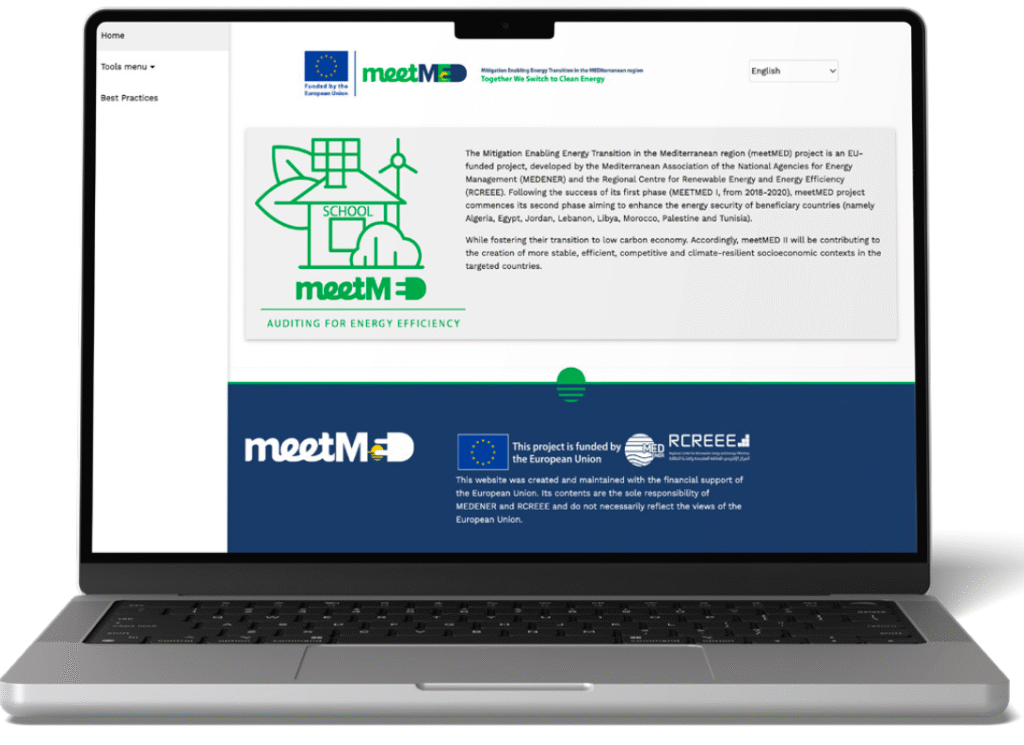
The Energy Modelling Webtool is designed to facilitate the energy audit process in schools, offering an efficient pathway for both preliminary assessments, and verification of existing audits. As part of meetMED project activities supported by the European Union, this versatile tool aims to simplify data collection, propose feasible renovation solutions, and provide a clear economic assessment of proposed energy interventions. This webtool has been conceived, designed and developed by ENEA.
The webtool is tailored for energy auditors, facility managers, school administrators, and policy makers dedicated to improving energy efficiency within educational institutions.
Energy Audits and Modelling Webtool
The webtool has been validated using the data from existing energy audits in Jordan and Lebanon and through new energy audits conducted ad hoc by APRUE (National Agency for the Promotion and Rationalization of Energy Use) in 15 schools located in seven cities across Algeria.
Modules Overview
1. Energy Profile Module
This module enables users to build a detailed energy profile of the school. It covers:
- Heating Systems: Identify the current heating setup, usage patterns, and potential inefficiencies.
- Electricity Usage: Analyze electrical consumption data, highlighting high-consumption periods and areas.
- Geometry & Operating Time: Examine factors like building geometry and operating hours, which impact energy usage.
Output: A comprehensive overview of the school’s current energy profile, pinpointing critical areas for improvement.
2. Renovation Proposals Module
With insights from the energy profile, this module suggests targeted renovation measures to enhance energy efficiency, covering:
- Architectural Elements:Assess potential upgrades to windows, insulation, and other building components to reduce heat loss.
System Improvements: Evaluate HVAC and electrical systems, recommending energy-saving updates and replacements.
Output: A prioritized list of renovation actions, customized to the school’s needs, offering a practical pathways to reduce energy consumption.
3. Economic Evaluation Module
The final module provides a clear economic analysis of the proposed interventions, helping decision-makers understand the financial implications which are:
- Cost-Benefit Analysis: Calculates the costs of each suggested measure and estimates potential savings.
Financing Options: Offers guidance on available funding options to support implementation.
Output: A detailed financial report that balances costs with projected energy savings, facilitating informed decisions on the proposed renovations.

